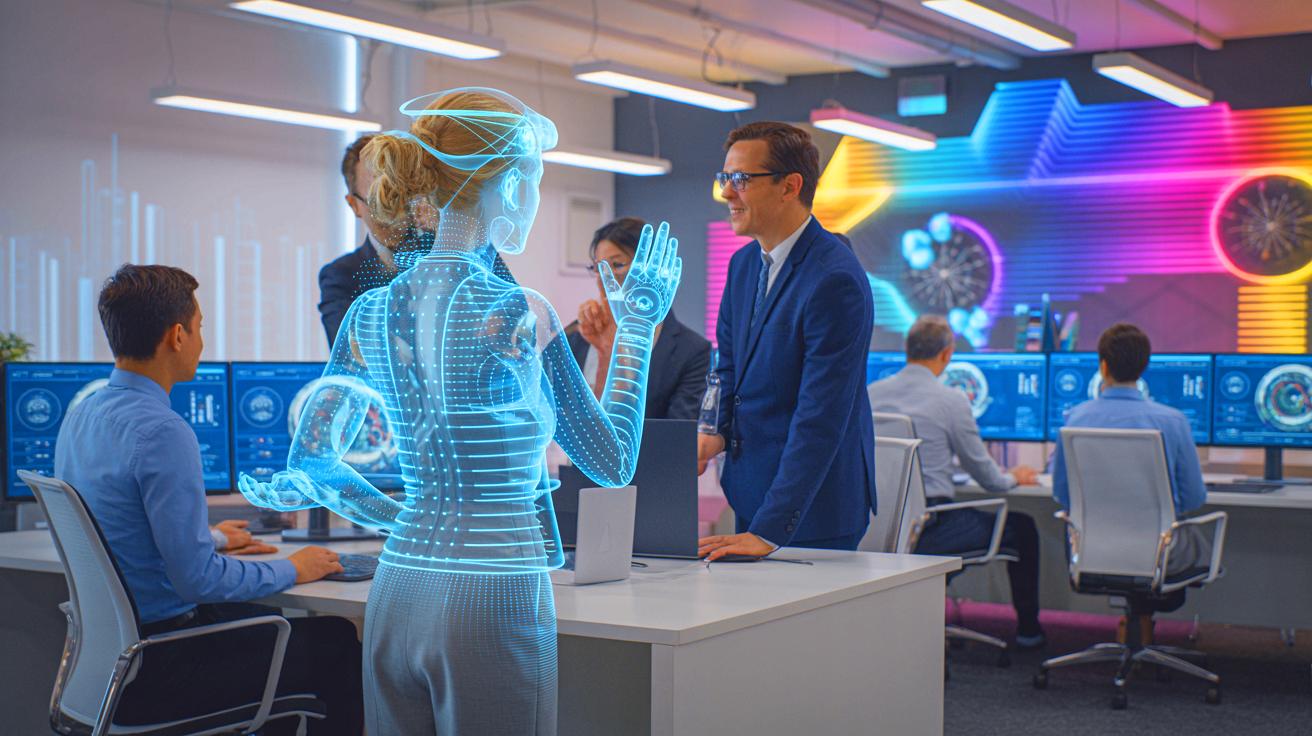IN A NUTSHELL
🚀 The city council in Peterborough, England, embarked on a groundbreaking project by creating a digital clone of Geraldine Jinks‘ expertise.
💼 Geraldine served as a vital resource with over 35 years of experience, often overwhelmed by demands from her colleagues for her specialized knowledge.
🧠 The digital clone aims to manage the workload by providing virtual assistance, showcasing the potential of AI in workforce management.
🤔 This initiative raises ethical questions about job security and the balance between technological innovation and human elements in the workplace.
In an era of rapid technological advancements, the integration of artificial intelligence into various sectors continues to reshape traditional workplace dynamics. While AI has been utilized for streamlining processes and enhancing efficiency, a recent development in Peterborough, England, has taken this integration to an unprecedented level. Geraldine Jinks, a highly regarded employee with decades of specialized experience, found herself at the center of a unique experiment. Her extensive knowledge and expertise were digitized to create a virtual clone, aiming to address the challenges posed by her indispensable role within the organization.
The Indispensable Employee
Every office has that one indispensable employee. The person whose knowledge and expertise are so invaluable that colleagues constantly seek their advice. In the offices of Peterborough’s city council, that person was Geraldine Jinks. With 35 years of dedicated service as a therapist specializing in personal support, Geraldine’s profound understanding of her field made her an essential resource for her peers.
Geraldine’s extensive experience meant she was often inundated with questions from colleagues, leaving her little time for her own complex cases. Her expertise had become a double-edged sword, as the time spent assisting others detracted from her personal workload. The situation became more pronounced during her absences, creating substantial gaps in the team’s capabilities. Thus, her unparalleled knowledge, while invaluable, also presented a significant challenge for the organization.
The Radical Solution
To address the growing dependency on Geraldine’s expertise, the city council embarked on a bold experiment. They decided to create a digital clone of Geraldine. This decision, while seemingly from the pages of a science fiction novel, was driven by practical considerations. By digitizing her knowledge, the council aimed to ease the demand on Geraldine’s time while ensuring her expertise remained accessible to the team.
This virtual clone was designed to emulate Geraldine’s ability to provide guidance and answer questions. The initiative represented a novel approach to workforce management, highlighting the potential of AI to supplement human capabilities. However, it also raised questions about the implications of such technology on employment and the human element within professional environments.
Implications for the Future Workplace
Geraldine’s digital cloning experiment underscores the evolving role of AI in the workplace. By digitizing her expertise, the city council explored new frontiers in human-resource management. Such innovations offer the potential to enhance productivity and efficiency, yet they also provoke complex ethical and practical considerations.
The use of AI to replicate human expertise challenges traditional employment paradigms. It prompts discussions about job security, the preservation of human interaction, and the ethical boundaries of technology. As organizations increasingly turn to AI solutions, balancing technological innovation with the preservation of human elements becomes paramount.
Ethical Considerations and Human Impact
The digital cloning of Geraldine Jinks raises significant ethical questions. While the initiative aimed to benefit both Geraldine and her colleagues, it also reflects broader societal trends towards automation. The ethical implications of replicating human expertise through AI require careful consideration, particularly concerning consent, privacy, and the value of human contribution.
Moreover, the impact on Geraldine herself must be acknowledged. While her virtual clone alleviates some of her workload, it also transforms her role within the organization. As AI continues to evolve, understanding its impact on employee identity and job satisfaction is crucial. Organizations must navigate these challenges with sensitivity and foresight, ensuring that technological advancements serve to enhance, rather than replace, the human workforce.
As the story of Geraldine Jinks demonstrates, the integration of AI into the workplace is not without its complexities. While the potential benefits are significant, the ethical and human implications require careful navigation. As we move forward in this digital age, how can organizations strike the right balance between technological innovation and the preservation of human elements in the workplace?
This article is based on verified sources and supported by editorial technologies.
Did you like it? 4.6/5 (22)

